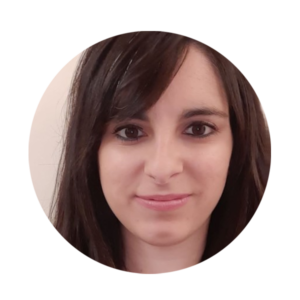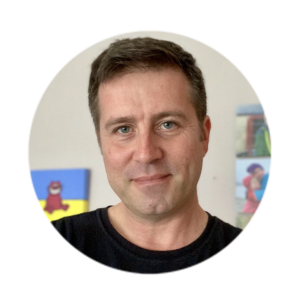For this session we are pleased to welcome Dr. Ana Pascual-Sanchez, Faculty of Medicine, Department of Brain Sciences, Imperial College London, to discuss her CAMH paper ‘How are parenting practices associated with bullying in adolescents? A cross-sectional study‘. Open Access paper at https://doi.org/10.1111/camh.12475
ACAMH Members link to paper once logged in
Authors: Ana Pascual-Sanchez, Ainoa Mateu, Maria Martinez-Herves, Nicole Hickey, Tami Kramer, Dasha Nicholls
Sign up to this free event at this link or on the Book Now button at the top of the screen and complete the form that follows. You’ll then receive an email confirmation and a link to the webinar, plus we’ll send you a calendar reminder nearer the time. ACAMH Members attending will be eligible for an electronic CPD certificate.
About the session
A panel, comprising paper author Dr. Ana Pascual-Sanchez, Imperial College London, Associate Professor of Experimental Psychology Lucy Bowes, University Oxford, and a lived experience perspective from the McPin Foundation, will discuss the research and its implications with information scientist Douglas Badenoch. This discussion will be facilitated by Andre Tomlin (@Mental_Elf).
To get the most from the session we suggest reading the following resources;
- Open Access paper at https://doi.org/10.1111/camh.12475
About #CAMHScampfire
ACAMH’s vision is to be ‘Sharing best evidence, improving practice’, to this end in December 2020 we launched ‘CAMHS around the Campfire’, a free monthly virtual journal club, run in conjunction with André Tomlin. We use #CAMHScampfire on Twitter to amplify the discussion.
Each 1-hour meeting features a new piece of research, which we discuss in an informal journal club session. The focus is on critical appraisal of the research and implications for practice. Primarily targeted at CAMHS practitioners, and researchers, ‘CAMHS around the Campfire’ will be publicly accessible, free to attend, and relevant to a wider audience.
Previous sessions are listed in our Talks & Lectures section.
About the panel

Dr. Ana Pascual-Sanchez graduated in Psychology in 2014 at University of Salamanca, and completed a PhD in Psychology in 2020 at the same university. Collaboration scholarship in Personality, Assessment & Psychological Treatment, Faculty of Psychology (2013-2014). She was awarded with the extraordinary Prize of Degree.
She completed her training as a Clinical Psychologist at Ramon y Cajal Hospital, Madrid, Spain (2015-2019), and was awarded with the medical area end of residency extraordinary award. She did an extern rotation at Brief Therapy Center & Strategic Family Therapy Center at the Mental Research Institute of Palo Alto, California, as well as other specific placements in child and adolescent mental health centers and personality disorders. She did Child and Adolescent Psychiatry and Psychoterapy training (SEPYPNA, 600h), an expert course in Child and Adolescent Psychiatry, and serveral specific courses in the area of childhood and adolescence.
She has collaborated in different research projects and she was also invited to give some lectures in postgraduate courses. She is an author of several national and international scientific papers, as well as book chapters. She has presented more than 60 communications in national and international congress.
Currently, she works as a Clinical Research Fellow at Imperial College, as part of the Advanced Training Program in Child and Adolescent Mental Health awarded by the Alicia Koplowitz Foundation to improve her clinical and research skills in this area. She also has an Honorary Contract with Central and North West London Foundation NHS Trust, and works in clinical practice in Child and Adolescent Mental Health Services. Bio and image via Imperial website.

My research focuses on the impact of early life stress on psychological and behavioral development. In particular, my research examines the effects of bullying and maltreatment on young people’s mental health and wellbeing. My research integrates methods from social epidemiology, developmental psychology and behavioral genetics in order to understand the complex genetic and environmental influences that promote resilience to victimization and early life stress. The aim of this research is to guide intervention work by identifying protective factors that promote lifelong resilience.

Andre Tomlin
André Tomlin is an Information Scientist with 20 years experience working in evidence-based healthcare. He’s worked in the NHS, for Oxford University and since 2002 as Managing Director of Minervation Ltd, a consultancy company who do clever digital stuff for charities, universities and the public sector. Most recently André has been the driving force behind the Mental Elf and the National Elf Service. The Mental Elf is a blogging platform that presents expert summaries of the latest reliable research and disseminates this evidence across social media. They have published thousands of blogs over the last 10 years, written by experts and discussed by patients, practitioners and researchers. This innovative digital platform helps professionals keep up to date with simple, clear and engaging summaries of evidence-based research. André is a Trustee at the Centre for Mental Health and an Honorary Research Fellow at University College London Division of Psychiatry. He lives in Bristol, surrounded by dogs, elflings and lots of woodland!
Follow on Twitter @Mental_Elf

I am an information scientist with an interest in making knowledge from systematic research more accessible to people who need it. This means you. I’ve been attempting this in the area of Evidence-Based Health Care since 1995. So far the results have been mixed. For some reason we expected busy clinicians to search databases and appraise papers instead of seeing patients. We also expected publishers to make the research freely available to the people who paid for it. Ha! Hence The National Elf service.

